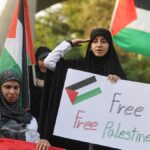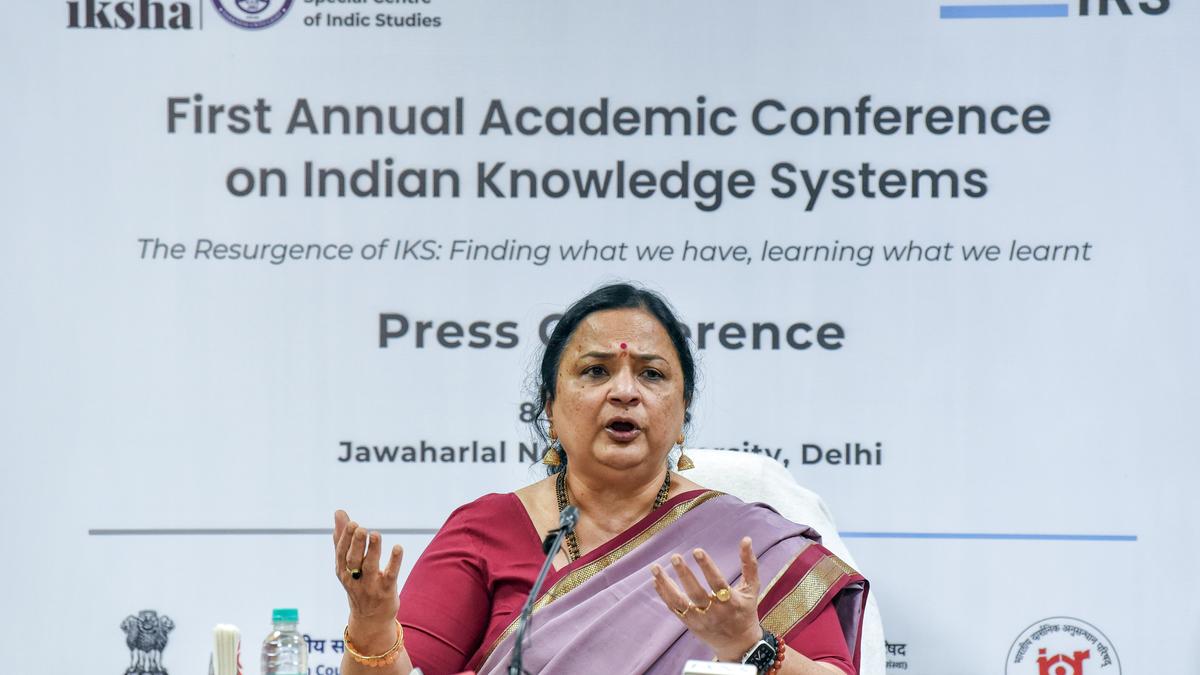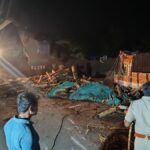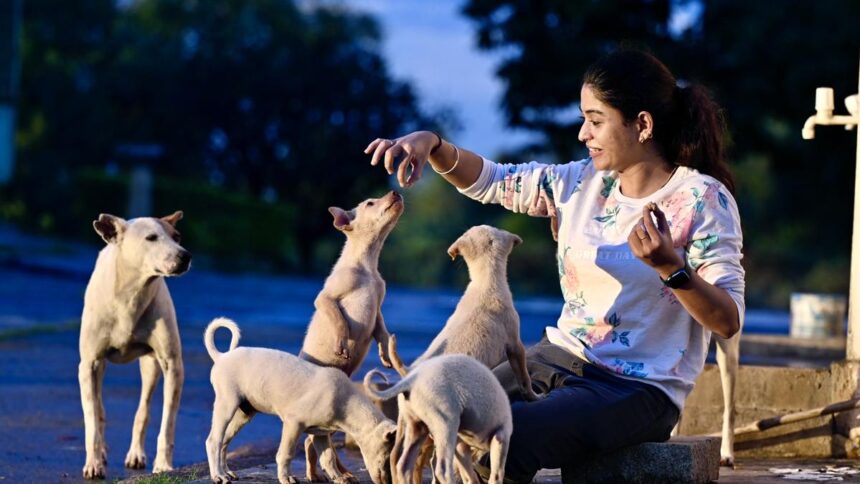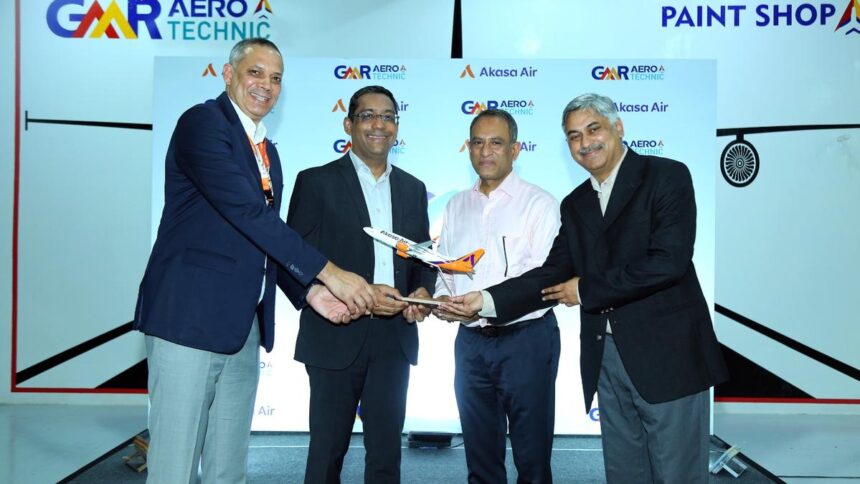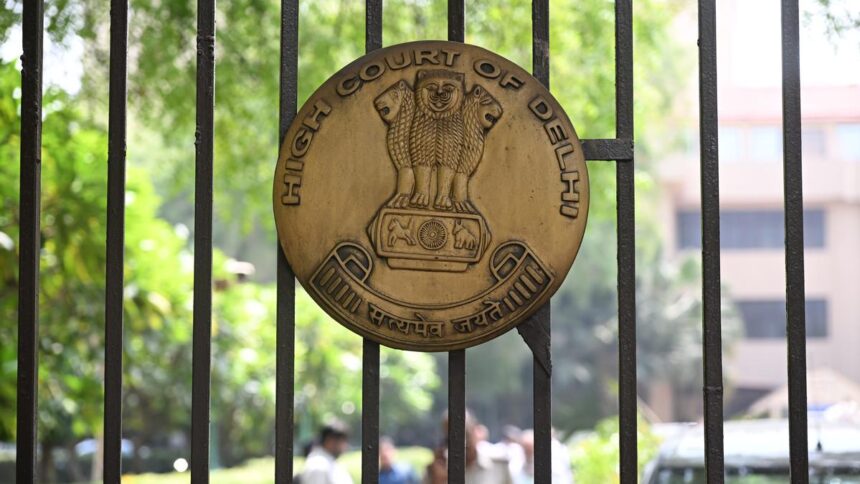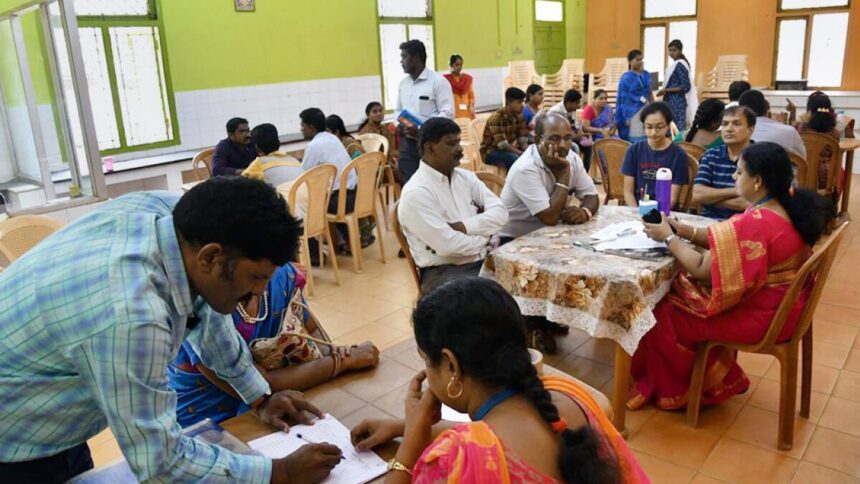
Jawaharlal Nehru University (JNU) Vice Chancellor Prof. Santishree Dhulipudi Pandit addresses a press conference
| Photo Credit: ANI
Underscoring the critical role of academia in national discourse, Jawaharlal Nehru University Vice-Chancellor Santishree Dhulipudi Pandit said on Thursday that political power must be supported by narrative power, which requires the contribution of academic institutions.
“Political power requires narrative power. So, intellectuals are very important,” Ms. Pandit said in her welcome address for the first three-day annual conference on Indian Knowledge systems being held at the JNU.
The conference, jointly organised by the JNU and the Ministry of Education’s Indian Knowledge Systems Division, aimed to provide a forum for academics, researchers, and practitioners to present their views and research on Indian knowledge.
“We hope this first conference will come out with path-breaking papers and will form the basis for any systematic study of Indian knowledge systems. It will also help build narrative power with the Prime Minister Narendra Modi’s vision to make Viksit Bharat,” said the V-C.
Inaugurating the conference, Vice President Jagdeep Dhankhar said that as India rises on the global stage, it must be rooted in its own knowledge systems and cultural legacy. “This journey is not short; it will take decades of dedicated effort. Let this conference mark the beginning of that resurgence. It is now in the hands of our scholars and teachers to carry this initiative to great heights,” said Mr. Dhankhar.
Later in a post of X, the Vice President said, “Now is the time to cast off the chains of borrowed narratives and inherited distortions. It is time to reclaim our intellectual sovereignty. This will be done through hard and patient scholarship. We would require an army of translators, researchers, scholars, professors, analysts, linguists, modellers, and the like.”
JNUSU protest
Meanwhile, the JNU Students’ Union continued its indefinite hunger strike, demanding the reinstatement of in-house entrance examinations for all courses.
Several students alleged that they were “assaulted” by the Delhi police personnel when they tried to protest outside the convention centre where the conference was being held.
Denying the allegations, a police officer said no student was assaulted. “When the protesting students started marching, they were stopped at the admin block. We acted as per the directions of the administration”.
A notice from the JNU’s Registrar’s Office said, “A few students attempted to disrupt the conference and tried to block the cavalcade of the Vice President. Such actions not only violate the principles of democratic expression but also tarnish the image of the university. While the JNU fully respects the right to peaceful protest, it strongly discourages any form of unlawful or disruptive behaviour.”
Published – July 11, 2025 01:18 am IST




